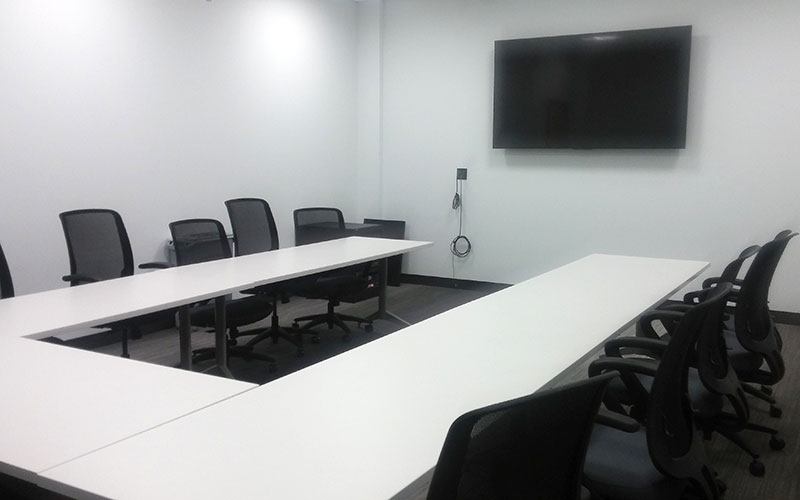Research
Center for Science, Technology and Society

Faculty members in the Center for Science, Technology and Society at Drexel University work to educate, examine and explore emerging trends at the intersection of Environment and Sustainability, Health and Medicine, and Information, Identity and Networks. This diverse cohort, made up of faculty experts from colleges and schools across the university, leverage their knowledge to advance the forefront of quickly emerging issues and work collaboratively to address local, national and global impacts.
The Humanities and Social Science Labs, hosted by the College of Arts and Sciences and located in Drexel’s Innovation Studio located at 3101 Market Street, offers our community of scholars dedicated space to examine these topics and catalyze information exchange.
Environment and Sustainability
Cities and regions around the world are looking for ways to increase energy independence and create built environments that support human and animal life. We are also investigating solutions to the ways climate change will affect critical interdependent urban infrastructure, and how to mitigate risks to our communities by redesigning these systems for sustainability and resilience.
Cultural contexts add a layer of complexity to how we think about and react to issues such as climate risks, debates about new and old energy technologies, disasters and questions about biodiversity and pollution. One's community and networks can influence the way members prepare for disasters. For example, national political ideologies can slow or speed investment in “green” technologies.
Faculty affiliated with Drexel’s Center for Science, Technology and Society research topics such as food access, the use of science and technology in disaster response, the relationship between new modes of transportation and the environment, the transnational production of citrus fruits, the social dimensions of new energy sources, and ways to address the effects of climate change.
Health and Medicine
Medicine is central to people's lived experience. People interact with medicine in a range of roles: as patients, as caregivers, as clinicians, as regulators, as insurers, as participants in human-subjects medical research, as consumers, and more. Moreover, medical technologies from bioinformatics to pharmaceuticals are crucial to the social shaping of health and illness. Our Center for Science, Technology and Society approach to health and medicine investigates issues such as when and why certain priorities in medical research and service delivery are favored over others; who and what drives ongoing policy debates in nations whose health system stakeholders grapple with issues like cost, accessibility and professional training; the cultural contexts that shape participation in health care professions and systems; the role marketing plays in medicine; and how definitions of disease and diagnostic categories change over time.
Faculty affiliated with the Drexel’s Center for Science, Technology and Society research topics such as the rise of self-diagnosis questionnaires and their impact on healthcare, ideas about the use of MRI technology, the ethics and history of public health, the use of animals in health research, and how and why the Buteyko method is being implemented in asthma care.
Information, Identity and Networks
Computing technology reaches into nearly every corner of life. Realms of human experience like security, privacy, health and wellness, assembling information and sharing knowledge, creativity, commerce and mobility are just a few examples of how daily human life intersects with information and computing technologies. The large-scale systems that infuse everyday life in cities—utility infrastructure, traffic regulation, emergency services—are a web of interdependencies whose operations rely on highly complex and sometimes vulnerable information structures. Moreover, classification schemes, categorical infrastructures and taxonomies are social products that require critical analysis.
Faculty affiliated with the Drexel’s Center for Science, Technology and Society research topics such as the ethics of big data and algorithms, the relation between nanotechnology and a changing workforce, the relation between computers and the construction of identity, and policies that promote civic engagement with computing technologies.
Humanities and Social Science Labs
The Humanities and Social Science Labs, located within Drexel’s Innovation Studio, are designed to provide scholars and teachers access to technologies and facilities that support research and educational programs that advance topics at the forefront of public debate: climate change, crime, environmental justice, labor transitions, new media and politics. Hosted by the College of Arts and Sciences, the lab spaces include a state-of-the-art focus group room and an interview room to support common data collection methods used in social science research; in addition, a smart classroom equipped with the latest analytical and creative software tools. Ready access to these spaces and tools provides faculty and students with high value analytical skills.
Make a Reservation

Room Number: 213
Capacity: 15 people
A/V: Vaddio recording system for visual and audio recording
Additional Features: Whiteboard writing surface, large screen walled monitor, tables with fifteen wheeled chairs
Make a reservation for the Focus Group Room at 3101 Market